
Standing at the head of Loch Broom in Ross and S Cromarty, I am watching a magnificent white-tailed eagle hunt for prey. Nearby is the road north to Ullapool; to the south-east the bare summit of Beinn Dearg looming over a deserted interior of high lochs and barren land punctuated by remote rivers and glens. Immediately in front of me is the dark outline of Inverlael Glen, densely planted with conifers in the 1930s.
It is a tranquil spot. You might hear the piping of oystercatchers or, in summer, the howling calls of mating red- and blackthroated divers. Today, the glen is devoid of people.
Rewind around 200 years and this would have been a vastly different scene. With widely spaced deciduous trees, this glen was home to around 77 multi-generational families and upwards of 600 Gaelic-speaking inhabitants. Their centuries-old lifestyle came to an abrupt end with the Highland Clearances of 1819-20, when they were brutally evicted and their homes destroyed.
There the story of Inverlael might end were it not for the curiosity and passion of Duncan Mackenzie - a former policeman, one-time guesthouse owner and lifelong stalker. He speaks of "a sophisticated people with a thriving economy". The evictions were the work of an unrelated Mackenzie - George Steuart Mackenzie of Coul - the laird who lived 40 miles south at Contin. To Duncan, he's "a toff set on improving land, rather than people". A landowner who could get six times more rent from sheep farming. "My grandfather rarely swore," says Duncan, "yet he summed up the landlord and his people in two words: 'the bastards"."
Some of those evicted went to other parts of the Highlands - 50 miles over the hill to Tain, south to Inverness or Dingwall. Others walked barefoot to ports to board boats bound for Tasmania and Nova Scotia, never to return. "It was just: 'Go... and don't come back!' They weren't even allowed to lift their potatoes."
This story is from the September 2022 edition of BBC Countryfile Magazine.
Start your 7-day Magzter GOLD free trial to access thousands of curated premium stories, and 9,000+ magazines and newspapers.
Already a subscriber ? Sign In
This story is from the September 2022 edition of BBC Countryfile Magazine.
Start your 7-day Magzter GOLD free trial to access thousands of curated premium stories, and 9,000+ magazines and newspapers.
Already a subscriber? Sign In
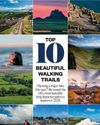
TOP 10 BEAUTIFUL WALKING TRAILS
Planning a major hike this year? We reveal the UK's most beautiful long-distance paths to explore in 2025

Free to feel good
We know time outdoors makes you feel better, but if you have a disability, getting out there isn't always easy. That's why charities like the Calvert Trust aim to give everyone the freedom of the countryside.
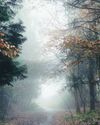
Vanishing fog
As new findings suggest fog may be disappearing from our world, Fergus Collins meets fog chaser Laura Pashby who treasures its power to transform landscapes - and ourselves

Smithfield's closure will be the end of an era, but it still has a future
What connects the great Victorian novelist Charles Dickens, the comedy actor TerryThomas and a branch of the Henson family?
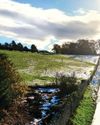
Electric dreams
Could this new cycling route in the Shropshire Hills become a star of Britain's bikepacking scene? Matt Baird mounts an electric bike to navigate the hills, thrills and basilicas of the Marcher Castles Way
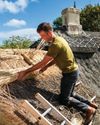
Up on the roof
Thatched roofs have been a part of the British countryside for 5,000 years. Tom Allan is one of a dwindling number of craftspeople making sure this ancient tradition remains a vital part of our rural life.
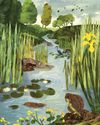
Sniffer dogs and tiny loos - the fight to save water voles gets serious
What do you do to discover how a much-loved but fast declining and elusive mammal is faring in its battle for survival along our rivers, streams and ditches? First, recruit hundreds of volunteers for look-out duties. Then call in specially trained detector dogs and build tiny floating loos.

RSPB WARNS AGAINST USING FLAT BIRD FEEDERS
The RSPB is reviewing its bird-feeder products over growing concerns about the spread of disease among garden birds
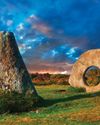
ANCIENT CORNWALL
England's wild far-western shores are scattered with mysterious ancient sites. Melanie O'Shea walks you back through time to the Celtic roots of Cornwall's ruggedly beautiful West Penwith peninsula

Famous terrier breeds
Despite their naturally combative nature, terriers make great pets, with most breeds described as affectionate, friendly, loyal or playful - or a mix of them all. James Fair details six key breeds
